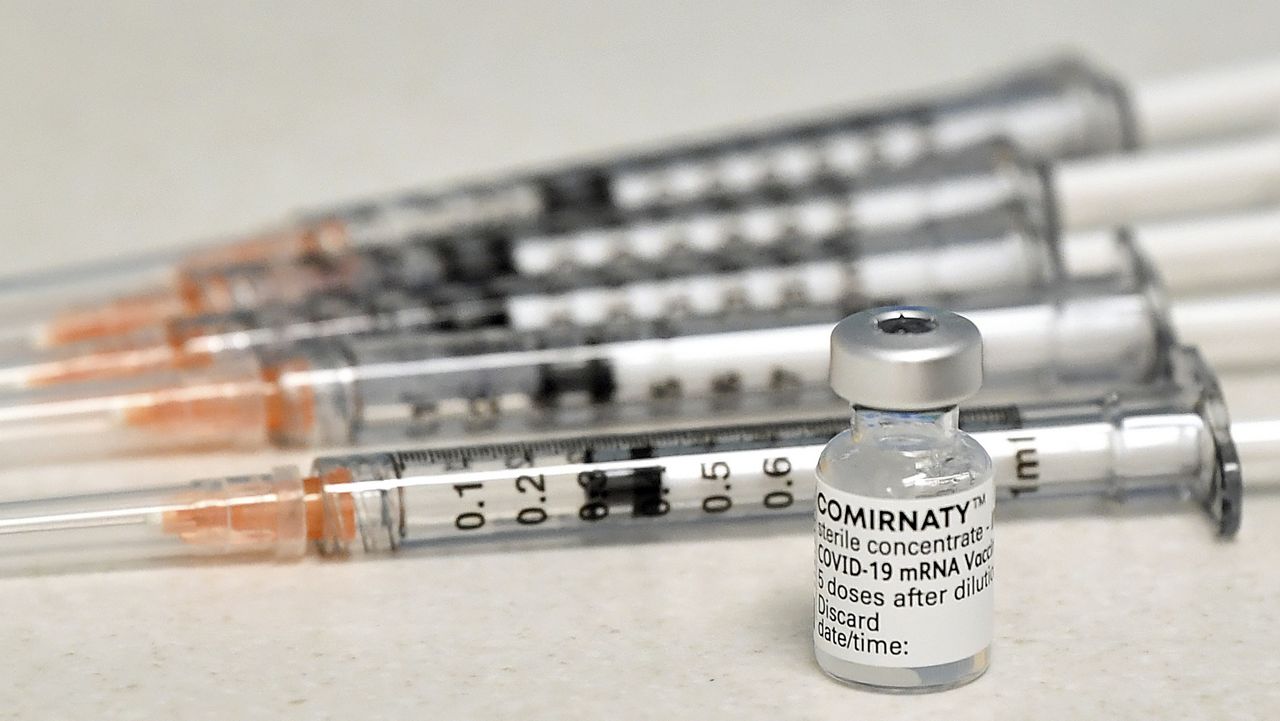The European Medicines Agency says it has started an expedited evaluation on whether to recommend a booster dose of the coronavirus vaccine made by Pfizer-BioNTech.
In a statement Monday, the European Union's drug regulator says it is considering whether a third dose of the vaccine should be given six months after people 16 and older have received two doses, “to restore protection after it has waned.”
EMA’s experts are carrying out an “accelerated assessment” of data submitted by Pfizer and BioNTech, including results from an ongoing trial in which about 300 healthy adults received a booster shot about six months after their second dose.
"EMA’s human medicines committee (CHMP) will carry out an accelerated assessment of data submitted by the company that markets Comirnaty, including results from an ongoing clinical trial in which around 300 adults with healthy immune systems received a booster dose approximately 6 months after the second dose," the agency wrote in a statement.
"Separately, EMA is also assessing data from the literature on the use of an additional, third dose of an mRNA vaccine (Comirnaty or SpikeVax) in severely immunocompromised people (i.e., with weakened immune systems)," the agency continued. "People with severely weakened immune systems who do not achieve an adequate level of protection from their standard primary vaccination may need an ‘additional’ dose as part of their primary vaccination."
Pfizer has already submitted an application to the U.S. Food and Drug Administration (FDA) for authorization of a third dose and the Biden administration said last month boosters would likely be available in late September. Israel has already started administering booster doses and the plan is under consideration in other countries for vulnerable populations, including France and Germany.
The World Health Organization has pleaded with rich countries not to use booster doses until at least the end of September, saying there is no scientific data that proves the shots are necessary. It says COVID-19 vaccines would be put to better use in developing countries, which have received fewer than 2% of the more than 5 billion doses administered.
Several studies have showed that protection from authorized COVID-19 vaccines against the highly infectious delta variant drops months after people have been immunized, but the shots still offer strong protection against severe disease, hospitalization and death.
The Amsterdam-based EMA said it expects to make a decision about whether or not to recommend a third dose of the Pfizer vaccine in the next few weeks.
It said it was also reviewing the use of a third dose of the COVID-19 vaccines made by Pfizer-BioNTech and Moderna in people with weak immune systems. It said those people might need an extra dose “as part of their primary vaccination” programs.



